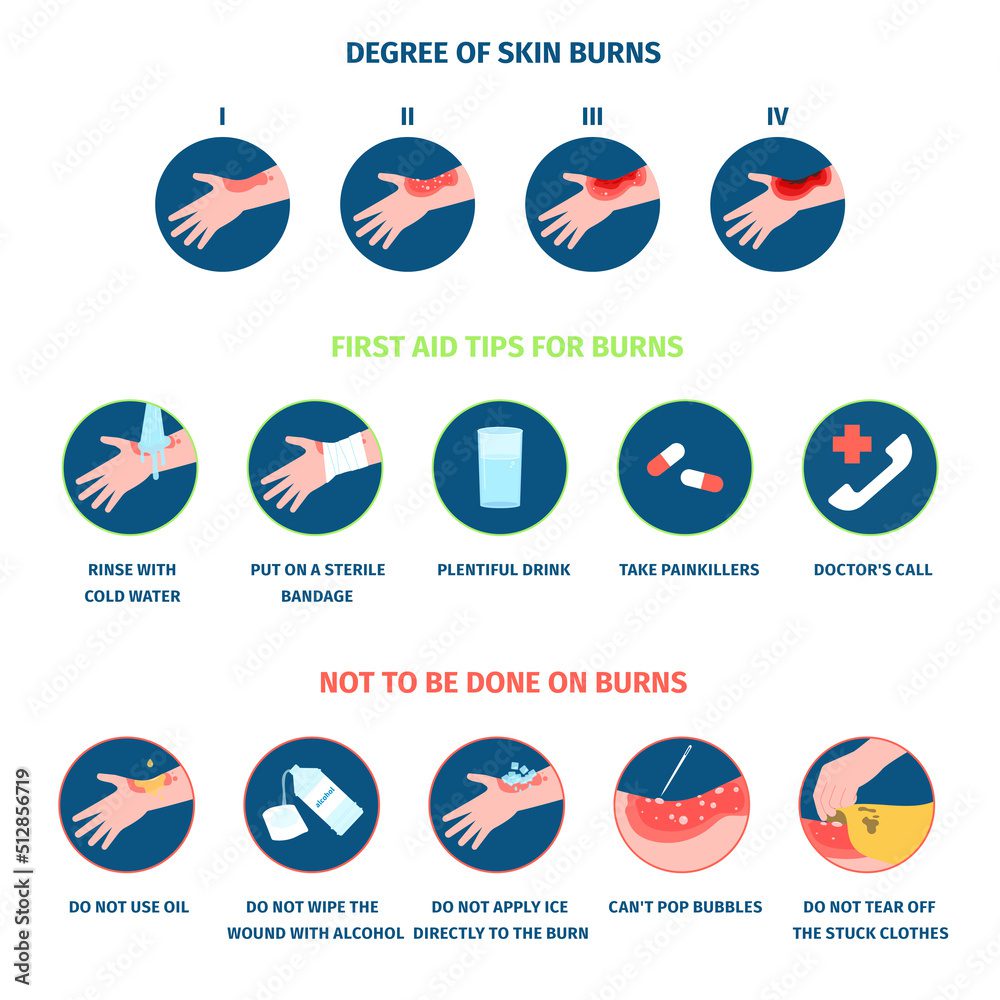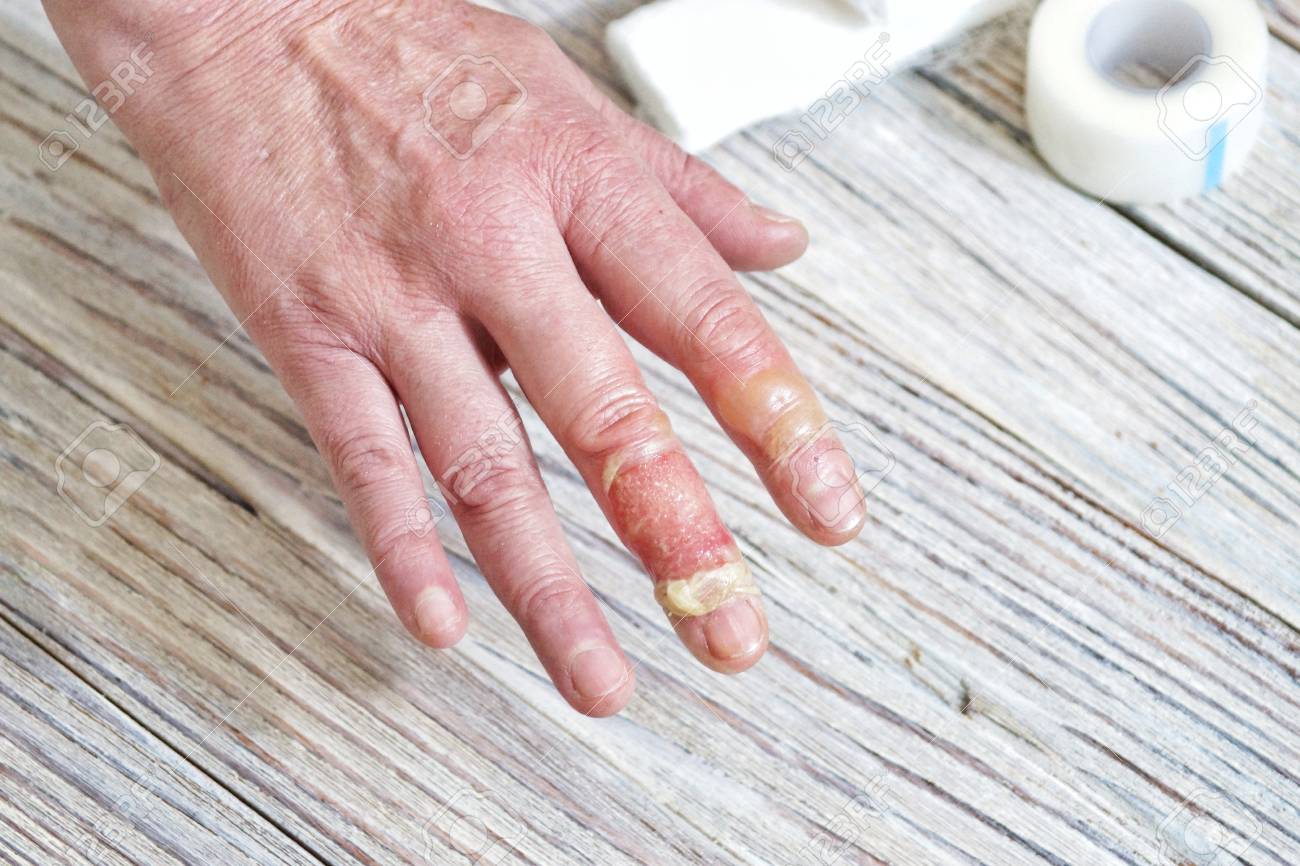When it comes to injuries, few are as potentially severe and complex to manage as burn injuries. From minor burns that can be tended to at home to those demanding urgent hospital care, burns present a spectrum of challenges. The destructive impact of excessive heat on tissue can lead to lasting damage, potentially resulting in permanent scarring. Symptoms such as swelling and redness in the affected area and its vicinity are common indicators of burn trauma. Whether caused by scalding liquids, sun exposure, direct flames, electrical incidents, or chemical exposure, understanding the nuances of burn injuries is crucial for prompt and effective medical intervention.
First Aid Lessons to Treat Burns
- First and foremost, place the burnt portion under running cold water as soon as possible. However, using ice can prolong injury, so avoid it at all costs.
- Restrain from scratching at the sight of injury, as it will provide little relief and will instead, increase the blistering.
- If there is any cloth obstructing the burn from the running water, gently aside it away to expose the skin.
- After rinsing the wound, cover it with a sterilized gauze pad to prevent infection due to dust or bacteria in the atmosphere.
- If the injury is oozing fluids, cover it with a gauze pad, and seek medical attention as fast as feasible.
- Avoid using home remedies if you aren’t sure about the level of burn because they do more harm than good. It is better to consult a doctor.

The patient must be hospitalized if:
- They have suffered third-degree burns.
- More than ten percent or the body has been affected.
- If the patient is a young child or difficult to treat.
Fire Safety for Homes
- Install smoke detectors with long-lasting batteries. Check them regularly to make sure they work as efficiently as possible.
- Conduct regular fire drills to train the entire family for what to do when there is a fire. Rehearse all the exit points in the house for all the different places that you think the fire could occur in.
- Decide on a safe family meeting spot where everyone can reach after escaping, in case of a fire.
- Teach everyone the “stop, drop and roll” drill if their clothes happen to catch fire.
- Avoid smoking indoors.
- Make sure not to leave any open flames unattended. Keep an eye on the stove while cooking.
- Check the electric circuits in the house from time to time, to avoid short-circuiting. Follow electric safety rules to ensure your well-being.
Questions to Ask Your Doctor
Ask your doctor about everything, any doubt, any question about burns.
- What medicine should you keep all the time at home to treat mild burns?
- What does a severe or mild burn look like?
- How to know that burn is severe or mild and when to approach your doctor?
- How to differentiate about the stages of burn?
- Can we treat mild burns with natural remedies?
- Can pain relievers really help with the pain of a mild burn?
- What is the treatment for smoke inhalation?
If you have any question regarding your medical claim, to ask if from your lawyer is as important as the question you asked your doctor. If in case, your burn is severe, and you have to be hospitalized, the bills are going to be at the higher side, so you need to know how to get compensated from your insurance company. It is not easy to get the claim from insurance companies, so it is better to consult with your attorney first before sending your claims to the insurance company.
Questions to Ask Your Personal Injury Attorney
1. Do I have a case?
An excellent personal injury attorney will be able to determine if it is sensible to proceed with your lawsuit only after hearing all the details of your case, regarding the severity of the burns, if the fire was caused due to negligence on the company’s part, and if the damage can be compensated.
2. Have you dealt with a similar case?
It is important to be well-informed about your attorney’s experience and years in business such as Portland personal injury attorney. Only then, you can rightly choose if they have the necessary skill set required to go head to head with an insurance company.
3. What is your case strategy?
Different cases require a different approach, so it is essential to know what your personal injury attorney is planning and recognize if this method will be appropriate for your lawsuit.
4. What damages can I expect?
As laymen, we wouldn’t be able to understand how much compensation we are entitled to. However, your attorney is well-versed in this field and will be able to quote the right amount.
5. How long will the lawsuit take?
Depending on the complexity of your case and the amount of compensation you are looking for, a lawsuit may take just a few months or maybe even a year. Our personal injury attorney will be able to judge that aptly.
6. What is your contingency fee?
Payment is to be made to the lawyer only if the case settlement is satisfactory and successful. If not, neither you nor your lawyer gets their money. It is important to calculate the fee beforehand for your information.
Burns takes a long time to heal, and the process is tiresome and painful. Very often, they are fatal. This is the reason everyone should know how to treat burns and most importantly, prevent fires. Remember, safety is of utmost importance.








